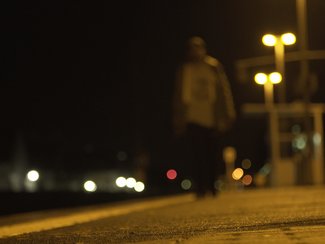
Mohamed’s Story: The deadly sea journey
Mohamed was living in Kenya where his family had sought refuge from the war in Somalia. He felt he had no future in the refugee camp and decided to try to go to Europe, encouraged by friends who had made the journey. He went to Sudan, where he met others planning to take the route through Libya. They arranged with the smugglers and left for the desert.
“The trip was very harsh. People were dying in front of me, and I could see dead bodies. Many people were thrown out of the car. If you argued with someone he might throw you out and the driver would never stop.”
Close to the Libyan border they were offloaded at a big human trafficking market where people were sold as cattle. He and his fellow passengers were handed over to Libyan traffickers who detained them and ordered them to call their families for ransom. Those who could not pay were beaten and electrocuted, some of them died. On his way through Libya Mohamed was sold and resold several times.
When he finally reached Tripoli he had to wait a long time because the sea route was closed. He then went to Tunisia but returned to Libya when he heard that the boats were going to sea again. He went on board a dangerously overloaded boat, built to carry 300 passengers but now carrying 600. This was the beginning of the worst part of his trip. The boat felt unstable already when it left port.
“At dawn the boat rocked three times and sank. I fell into the water. My life jacket kept me afloat. People were dragging each other down. Some were stuck on the boat, others were clinging to each other. Only 50 people survived from the 600. I knew how to swim, so I stayed away from them. I got far away from where the other people were.”
He was rescued by the Libyan Marine and taken back to shore. But his horrifying experience did not deter him from making another attempt to cross the sea. The second time the boat he was on started leaking and had to return to Libya. It was on his third attempt that he finally managed to reach Italy. He ended up in Germany where he received a one-year temporary permit to stay.
Mohamed is critical of his compatriots who have had similar experiences as he but do not inform their friends back home about the dangers. He says that he himself is trying to be honest about the horrors of the journey when talking to family and friends.
“The people who cross the sea never tell their friends back home what they have seen during the journey, but they send them their pretty photos.
The worst guys are those who send their friends nice photos for others to come after them. This is what causes many people to go on this risky journey. I have already advised many of my relatives, and I hope they now understand the hardships very well. I have told them clearly what I saw on the journey, that it wasn’t easy.”
